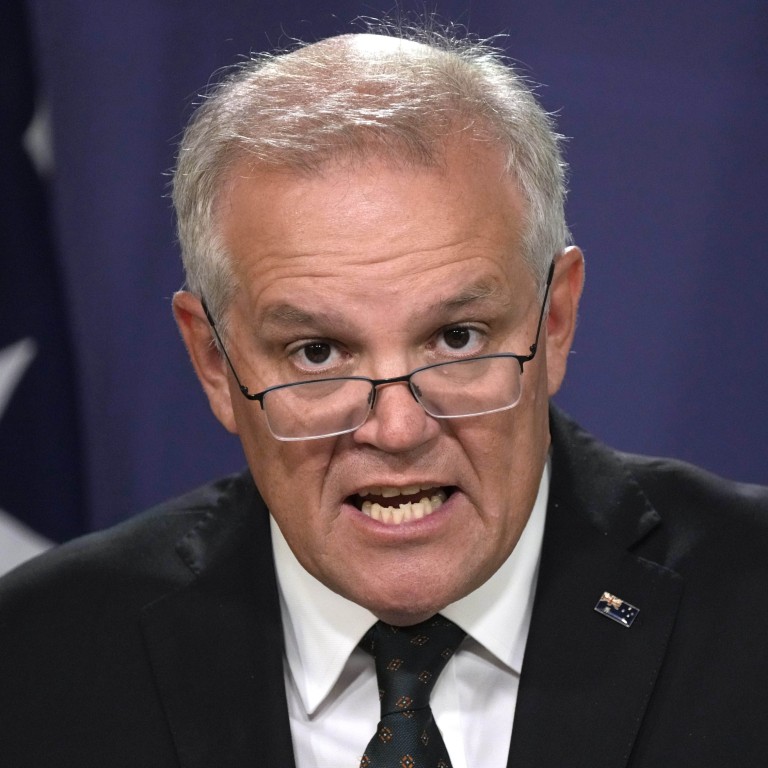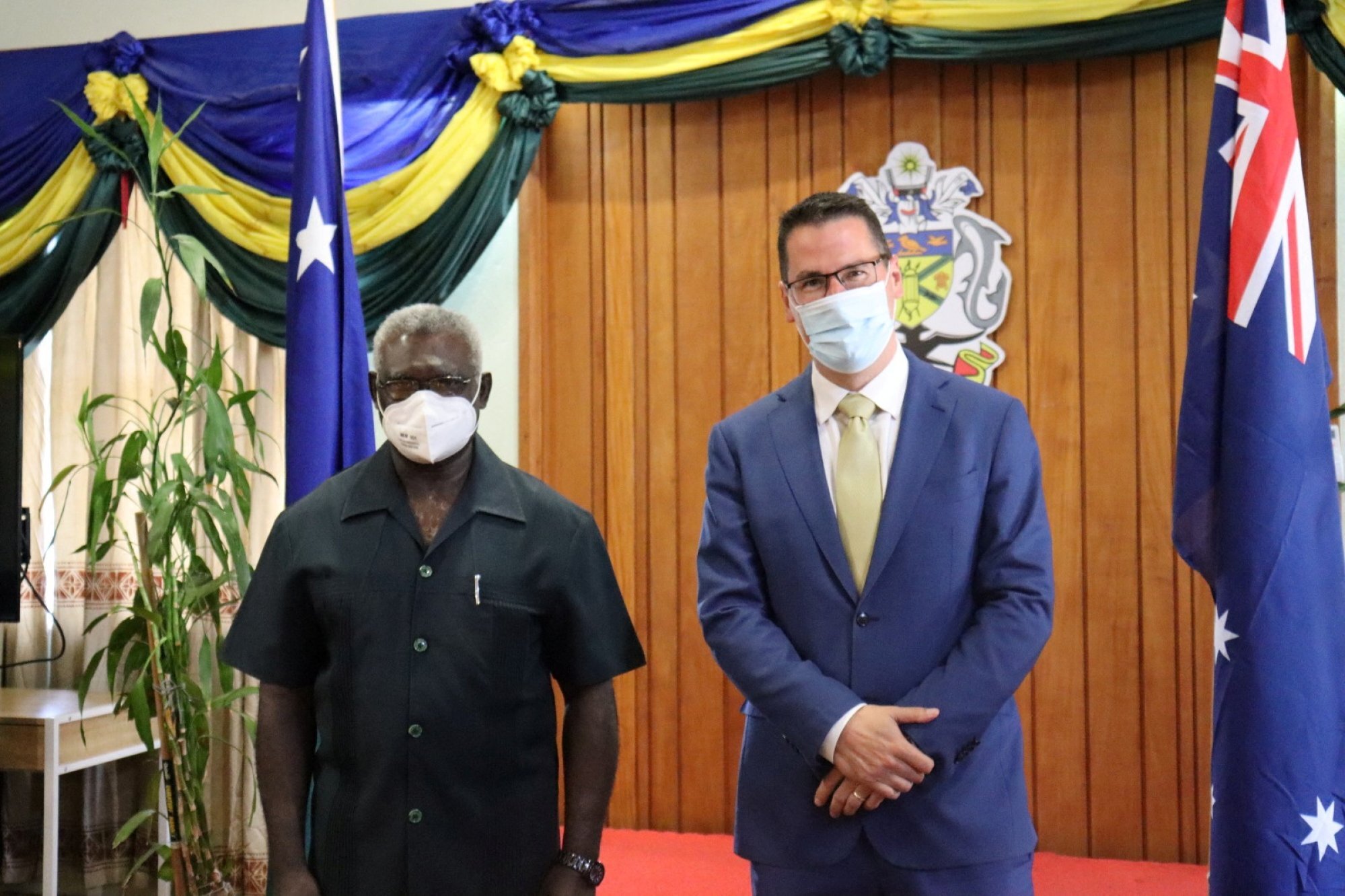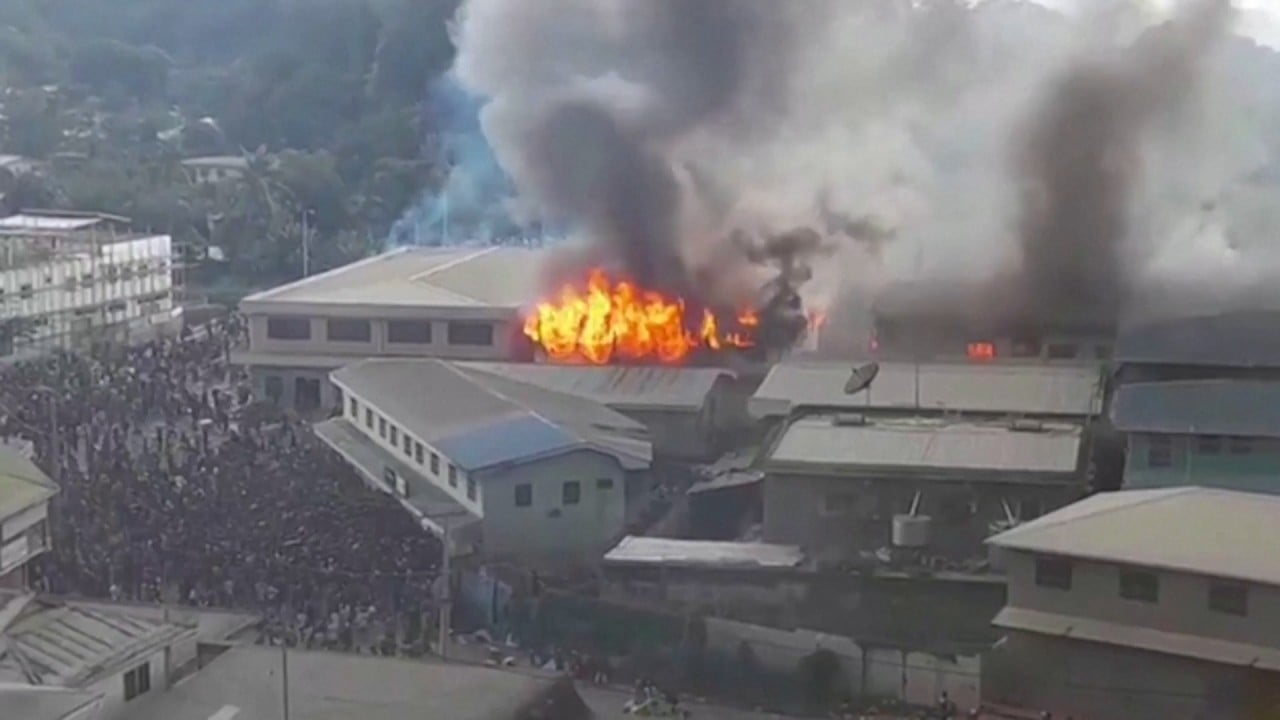
Australia-China relations: Solomon Islands faces pressure over security pact as US weighs in, Scott Morrison sends minister amid election campaign
- Honiara maintains that there are no plans for China to build a military base in the Pacific nation and has called Canberra’s comments on the pact ‘insulting’
- Analysts say the incident reveals flaws in Australia’s approach to its ties with the region, with one former diplomat calling it the final ‘nail in the coffin’
Zed Seselja, a junior minister in the cabinet of Australian Prime Minister Scott Morrison who is in the midst of campaigning for a tough re-election, went to the Solomon Islands’ capital of Honiara, where he met Prime Minister Manasseh Sogavare and other officials.
“Australia respects Solomon Islands’ right to make sovereign decisions about its national security,” Seselja said in a statement on Wednesday. “We have asked Solomon Islands respectfully to consider not signing the agreement and to consult the Pacific family in the spirit of regional openness and transparency, consistent with our region’s security frameworks.”

While details of the pact have not been revealed by either side, a leaked draft showed Chinese naval vessels would be allowed to dock in the country and Beijing would be able to deploy police, armed forces and military personnel to the Pacific nation.
This has raised alarm bells over the possibility of a Chinese military presence about 2,000km (1,200 miles) from Australia.
Pacific states disenchanted with Australia, China, warily welcome US push
Political analyst Mark Kenny, a professor at the Australian National University’s Australian Studies Institute, said Seselja’s trip was meant to signal that Canberra was “on top of national security challenges it faces” related to China “expanding and asserting itself in the region in ways that are contrary to Australia’s interests”.
“[But] it’s what you might call a day late and a dollar short,” he said.
Really, Australia has neglected this region for a long time
“Really, Australia has neglected this region for a long time, it has tried to address that more recently with the Pacific step-up, which some have called stuff-up, unkindly.”
Indeed, Seselja’s trip revealed Canberra’s sense of urgency on the matter. He received bipartisan approval to leave during a crucial election caretaker period – when the government typically refrains from major ministerial actions and policies. Australians go to the polls on May 21.
Chinese foreign ministry spokesman Zhao Lijian told reporters in Beijing on Wednesday that the security cooperation between China and the Solomon Islands was not targeted at any third party and did not contradict the cooperation the Pacific nation has with other countries.
Australia should “respect the sovereign and independent choices made by China and the Solomons and not instigate confrontation”, Zhao said.
‘Very insulting’
Seselja’s trip followed on from the Morrison government sending two intelligence officials to Honiara last month after details of the draft pact surfaced on social media.
Two days ago, Honiara released a statement cautioning the public against “fake news or misinterpreted commentaries on social media forums” from people who were “hell bent on creating instability for their own interests”.
Anouk Ride, a researcher with the Initiative for Peacebuilding at the University of Melbourne who is based in the Solomon Islands, said the opposition party and key civil society groups had spoken out about the secrecy surrounding the treaty.
“All sides should keep in mind that many Solomon Islanders are also concerned about the potential treaty,” she said, adding that there had been no consultation or parliamentary review.
‘We are less afraid’: in Solomons, a calm, but suspicions of China linger
“Public servants have leaked the treaty and correspondence between China and Solomon governments regarding arms, so this is a sign even within the government there is concern about current escalation and potential militarisation,” Ride said.
“We shouldn’t view concerns about the treaty as being Australian, but local, and shared by some Pacific island states in the region.”
Flawed ties
The furore over the pact underscores how smaller nations in the Asia-Pacific have found themselves caught up in US-China rivalry and competition for influence.
But analysts said the situation also revealed flaws in Australia’s approach to its ties with the region, which had for too long been viewed through the lens of geopolitics, rather than through understanding domestic priorities or the cultural diversity of the region.
Former Australian diplomat Bruce Haigh said the scramble to visit Honiara was the final “nail in the coffin” for the mismanagement of Australian foreign policy in the Pacific. Peter Dutton, Australia’s current defence minister, was overheard joking about Pacific islands’ climate concerns and the risks posed by rising sea levels several years ago.
It is insulting for Australia to use the term Pacific family when there is little respect or meaning behind it
“As a sovereign state the Solomon Islands can make decisions and determinations about the security of the country and the well-being of its people,” he said. “It is insulting for Australia to use the term Pacific family when there is little respect or meaning behind it and when it is not reciprocated.”
In a recent analysis piece, international-security professor Joanne Wallis and senior lecturer Czeslaw Tubilewicz from the University of Adelaide said that geopolitics was not always at the centre of the Solomon Islands’ policy decisions.
Rather, they said its desire to “diversify” partnerships was driven by domestic politics – including the need to make the islands’ development more even and equal, and resolve grievances arising from prior conflicts.
In a tweet on Wednesday, former prime minister Kevin Rudd wrote that the main party in Australia’s current ruling coalition had opened the door for Beijing by cutting aid to Pacific islands and ignoring their climate concerns.
Australia is currently the region’s largest donor – distributing about A$1.3 billion (US$968 million) in aid per year, according to Canberra’s department of foreign affairs and trade.
A battleground between China and the West raises concerns over Aukus deal
Wallis and Tubilewicz said in their paper that the Morrison government’s foreign policies were not working if Canberra could not “head off Honiara considering the security agreement with China”, despite spending billions in aid.
Other Pacific island nations have taken umbrage with Australia, saying they were not being taken seriously. Tuvalu threatened to pull out its people from a seasonal worker scheme in 2019 after then-Deputy Prime Minister Michael McCormack said the region would survive climate change because their workers came to Australia to “pick our fruit”.
That year, the Fijian prime minister Frank Bainimarama also said Morrison was “insulting and condescending” when he asked Fiji to uphold Australian policies.
Additional reporting by Reuters


